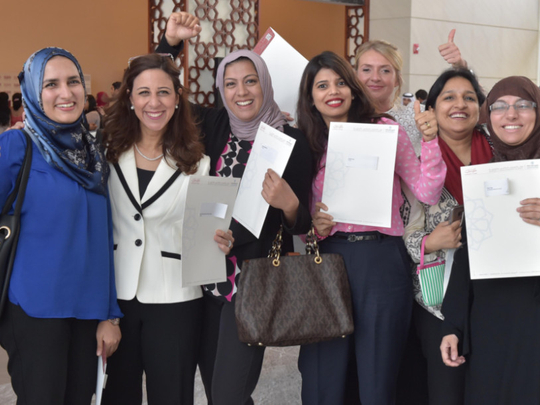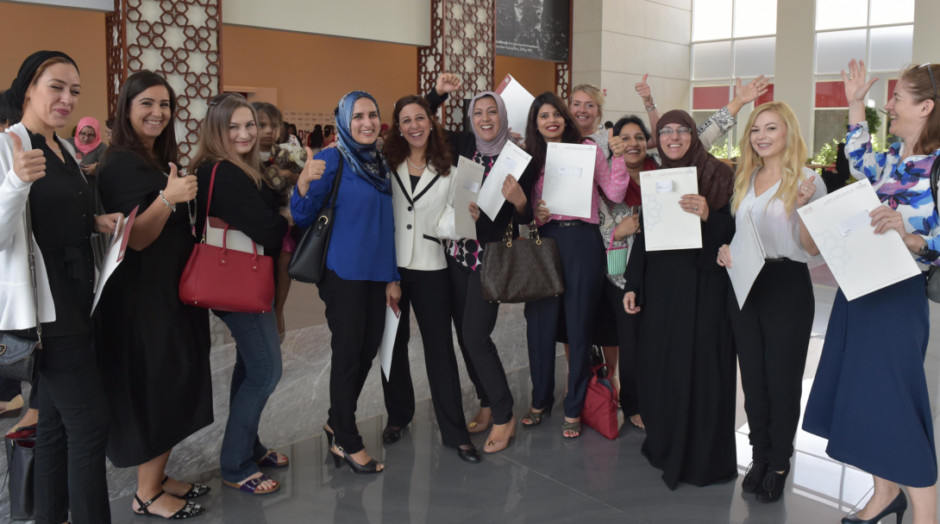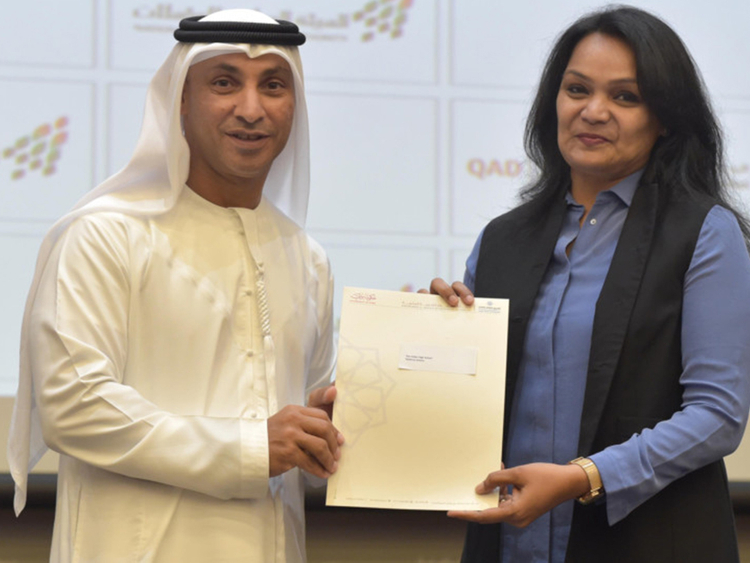
Dubai: The first batch of teachers on Monday obtained the UAE teacher’s licence that all teachers will need to work in the country.
The 106 newly-licensed teachers represent 15 private schools in Dubai that participated in the pilot project of the Teacher and Educational Leadership Standards (TELS) and licensing programme.
Starting September, the beginning of the new academic year, schools will have until 2021 to ensure all teachers are licensed. There is currently no federal or local teachers licence in the UAE.
On Monday, officials said another 50 teachers who participated in the pilot project failed to achieve “Competent Teacher Status”, but they will be able to retake TELS tests.
The total of 223 teachers in the pilot project represent 29 nationalities, mostly Indian, British and American.
The National Qualifications Authority (NQA) has said TELS aims to meet targets of the UAE National Agenda, aligned to UAE Vision 2021.
Teacher licensing will be overseen across the UAE by the NQA and the Ministry of Education, in coordination with Abu Dhabi Education Council (Adec), Dubai’s Knowledge and Human Development Authority (KHDA) and other relevant entities.
In Dubai, the pilot project was rolled out by the KHDA, with British University in Dubai conducting professional development, training and assessment.
On Monday, Dr Abdulla Al Karam, director-general of the KHDA, congratulated the licenced teachers at a ceremony at Emirates Aviation University and thanked all partners in TELS. He said competence was just one “baseline for good teaching”.
Teach Together
Dr Al Karam said that during his role as a teaching assistant in the recent Teach Together initiative, “what I’ve seen, it’s not just about the competence — but there’s a lot more in the teachers. I’ve seen their ability to listen, their kindness, their laughter and I’ve seen them teaching a whole lot of love”.
He added: “These are traits that make a good teacher competent and more than that. These traits are what we would like to see more of in each classroom.”
Dr Naji Al Mahdi, KHDA’s chief of qualifications and awards, said TELS would move from “being externally driven [by authorities] to internally driven by schools”, explaining that schools would have until 2021 to ensure teachers obtain the licences. They can chose which teachers to start with the TELS process first and when.
Dr Al Mahdi pointed out that TELS would expect teachers to also know about protection of students with special needs, UAE culture and other localised considerations, besides professional competency.
Residents who have no prior teaching experience can also apply for the licence, he added. At the same time, experienced teachers with no formal teacher’s qualification will be able to take just one assessment instead of the typical four in TELS.
Dr Al Mahdi said the plan is to have TELS UAE recognised as an international teaching licence on par with other international teaching licences.














